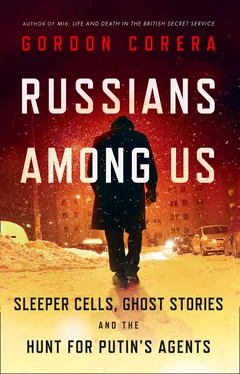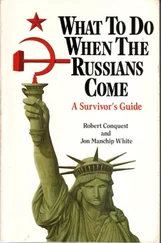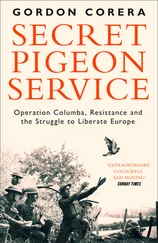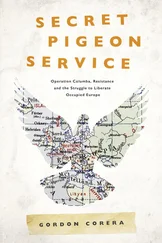Ghost Stories was also the code name of the decade-long FBI investigation into Russians living under deep cover as sleepers in America. It was a fitting title, since these were people who had been resurrected from the dead in graveyards as part of Russia’s “illegals” program. The story of these spies and those who pursued them is told here for the first time in detail but set against the broader story of espionage between Russia and the West. A confession: I was one of those reporting on the events surrounding the Vienna swap who thought it was all a bit peculiar. Hindsight is a wonderful thing, and this book sets out to explain why those events were not just the last echoes of the past but also foreshadowed a darker future. The scene at the Vienna airport offered a snapshot of a normally hidden Russian intelligence program, and the blinding flash of publicity illuminated both the tail end of a program running from deep in the Cold War and the beginnings of a new Russian strategy that would replace it.
One veteran of the CIA shakes his head in awe as he ponders how his old adversary has the mind-set to send people to live as “sleepers” in another country for decades, patiently burrowing into the heart of their target, waiting for years to act. This was evidence of the Russians’ persistence and patience in targeting its adversary—qualities that have not always been appreciated. Meanwhile, on the Western side, the focus on Russia from the end of the Cold War onward has been hazy and erratic.
As a result, the illegals arrested in 2010 were portrayed as something of an oddity and certainly not dangerous. “They successfully infiltrated neighborhoods, cocktail parties and the PTA,” one of their lawyers said, mocking the charges his client faced. This was a narrative deliberately reinforced at the time by the US administration, which was in the middle of an effort to reset relations with Russia. Seeing Russian spies either as figures of fun or as all-powerful is a mistake. The reality was that the illegals were involved in building networks and putting down roots that could have resulted in long-term damage. A previous generation of Russian illegals in the 1930s and 1940s had played a key role in helping steal American atomic secrets and eating away at the heart of British intelligence from the inside. There was real risk from their work and their mission reveals much about how Moscow sees—and sometimes misunderstands—the West.
But they were also people. There are complex personal stories at the heart of this tale. Imagine being a child brought up in suburban America, pledging allegiance at school and running lemonade stalls for your neighbors, but then coming home one day from a pool party to find the FBI all over your house. And then being informed that your parents were not Americans but Russians. And then two weeks later being on a plane to Moscow. It is no wonder that the work of the illegals became the inspiration for The Americans, a TV drama set in the eighties. And the real-life spies are sometimes more extraordinary than those of fiction.
The ghost-stories roundup of 2010 illustrates the pivot in Russian espionage that was taking place and changes that were not appreciated at the time. “The Western world can’t bring itself to believe to what extent it is transparent and vulnerable to Russian illegal intelligence,” a person who worked inside Russia’s top secret illegals directorate argues. Moscow has long sought to exploit that openness but the way it does so has changed. The end of the Cold War did not end the illegals program, but the new interconnectedness of the 1990s and then the post-9/11 era have changed the way it goes about it. That led to a new breed of spy, Anna Chapman being one example. This is not our parents’ Cold War.
Vladimir Putin is a practitioner of the martial art of judo. It allows a weaker opponent to defeat a stronger adversary. Rather than confront that opponent head-on, the trick is to leverage their strength to throw them off balance. That is what Russia has done with the West. Using the West’s openness was at the heart of the illegals program, but the Kremlin’s judo has evolved since 2010 as the internet and social media have offered new opportunities. The internet’s fundamental features make it a perfect place for those who want to obscure or hide their identity—opening the way for what I call the new “cyber illegals.”
One reason the 2010 illegals story was downplayed was that the Russian spies did not get hold of classified information. But this was another mistake. What if spies are not after secrets but influence? The Kremlin’s agents have learned to marshal espionage, influence operations, and use technology in a novel way as they engage in a conflict with the West that for many years went unrecognized.
These changes were slow to be appreciated in the West, partly a result of the deliberate playing down of the events in 2010 and partly because of the continued hold of a Cold War mind-set. This is a story that matters not just because of what it tells us about Russian and Western espionage but also because of its consequences and repercussions. The pain and humiliation of the defeat in 2010 would not be forgotten in Moscow. It left scars on Putin personally. Russia’s leader, who worked with the illegals program as a young KGB officer, has risen to power and cemented his hold on it thanks to a story he told his people about spies and treachery. Revenge for that humiliation would come served in a bottle of perfume eight years later and in a new campaign unleashed against the West by the Kremlin. Russia is now barely out of the news. But that also has risks.
THE CIA’S APPRENTICE spies who have been chosen to operate in Moscow are given an extra level of training on how to spot the surveillance teams that will be following them. Identifying the tiny telltale signs that suggest the woman in the shop or jogger on the street is not just a member of the public but actually a Russian surveillance operative takes an extra degree of preparation required from anywhere else. After a training mission out on the streets, the students report back to their instructors on which of the people they thought were really watchers. But some trainees become so hyperaware they get it wrong, believing that ordinary people are in fact operatives trailing them. These false positives are known as “ghosts.” A form of paranoia is always a risk for those who work in intelligence. It can also apply to nations as well. Russia and the West have sometimes seen “ghosts”—the hidden hand of the other side when it is not there, especially now. Trying to distinguish between the apparition and the real is difficult but a clearheaded appreciation is vital to avoid the dangers of miscalculation.
The aim of this book is not to demonize Russian spies, let alone all Russians. It is a mistake to not try to understand how the world looks from inside the Kremlin. A mind-set that Russia is a besieged fortress under subversive attack from the West—and particularly the CIA and MI6—has played an important role in justifying Moscow’s actions. Spying is supposed to illuminate the other side’s intentions, but it can also increase tension and drive conflict. This book is based on interviews with dozens of intelligence officers in London, Moscow, Washington, and elsewhere, including some who have served as illegals. Many have worked at the front lines and in most cases they spoke anonymously, but their accounts help explain how we got to where we are today.
It is tempting to talk about a “new Cold War.” That conflict is long gone. There is a new one that is being fought today with both old techniques, like illegals, and new ones. And the best place to start this story is at the moment that the last conflict ended.
Читать дальше












